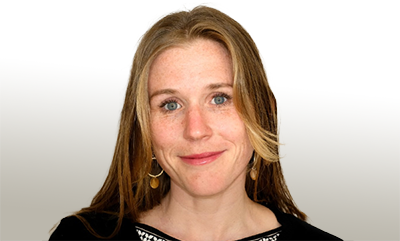Professor to Advise on Return of Boston Marathon.

Brooke Nichols, assistant professor of global health, has been appointed to the Boston Athletic Association’s (BAA) COVID-19 Medical & Event Operations Advisory Group.
The newly formed group is comprised of medical, public safety, and race operations experts, as well as state and local officials, who will advise the organization on when and how to safely hold the 125th Boston Marathon and the BAA’s other large, in-person races again.
Originally scheduled for April 20, the 2020 Boston Marathon was postponed, and then cancelled, as a mass-participation road running event for the first time in its 124-year history due to the social distancing requirements of the COVID-19 pandemic. Instead, the race was held as a virtual event from September 7-13. As the oldest annual marathon in the world, the Boston Marathon typically draws more than 30,000 runners and as many as 1 million people lined up from the starting line in Hopkinton, Mass. to the finish line in Boston’s Back Bay neighborhood. The BAA 5K race, which was scheduled for September 12, was also cancelled.
Nichols will work with the advisory group members to recommend strategies that emphasize the health and safety of race participants, staff, volunteers, and community members. The group will develop a framework for the BAA that addresses risk factors specific to the Boston Marathon, including crowd size and other local and international considerations.
As an infectious disease mathematical modeler and an avid runner who has participated in 10 marathons and ultramarathons in the Netherlands and South Africa, Nichols says her appointment to the advisory group is a “dream come true.” She had hoped to participate for the first time in next year’s Boston Marathon, but her anticipated qualifying marathon was cancelled.
“The Boston Marathon is such an iconic race, and I also really love my work with infectious diseases,” says Nichols. “I never expected my favorite hobby to intersect with my work, and, though under unfortunate circumstances, I’m glad I can assist the race to determine how and when the marathon can be held safely.”
Some of the critical factors that Nichols says should be considered before resuming mass-participation races are the reduction of participant density on the course (by limiting participation of runners at a given time, or by holding the race over more than one day), adequate PPE protection for marathon staff and volunteers, creative solutions for the start and finish lines, guidelines for spectators, and an effective COVID-19 testing strategy “that will ensure that no one is running, volunteering, or working while infectious.”
Registration for the 2021 Boston Marathon has been postponed, and the timeline for the race will be informed by the advisory group’s findings and input.
Nichols’ research interests and experience include modelling and economic evaluation of treatment as prevention and pre-exposure prophylaxis, HIV drug resistance modelling, geospatial modelling, and translating research into public policy recommendations. She has conducted mathematical modelling of the coronavirus pandemic in South Africa and Zambia, with a focus on resource allocation and optimized molecular and serological testing strategies within constrained resources.
Established in 1887, the BAA is among the oldest athletic clubs in the United States. On April 19, 1897, the organization held a 24.5-mile BAA Road Race to conclude the BAA Games, a springtime athletic competition, which later became known as the Boston Marathon.